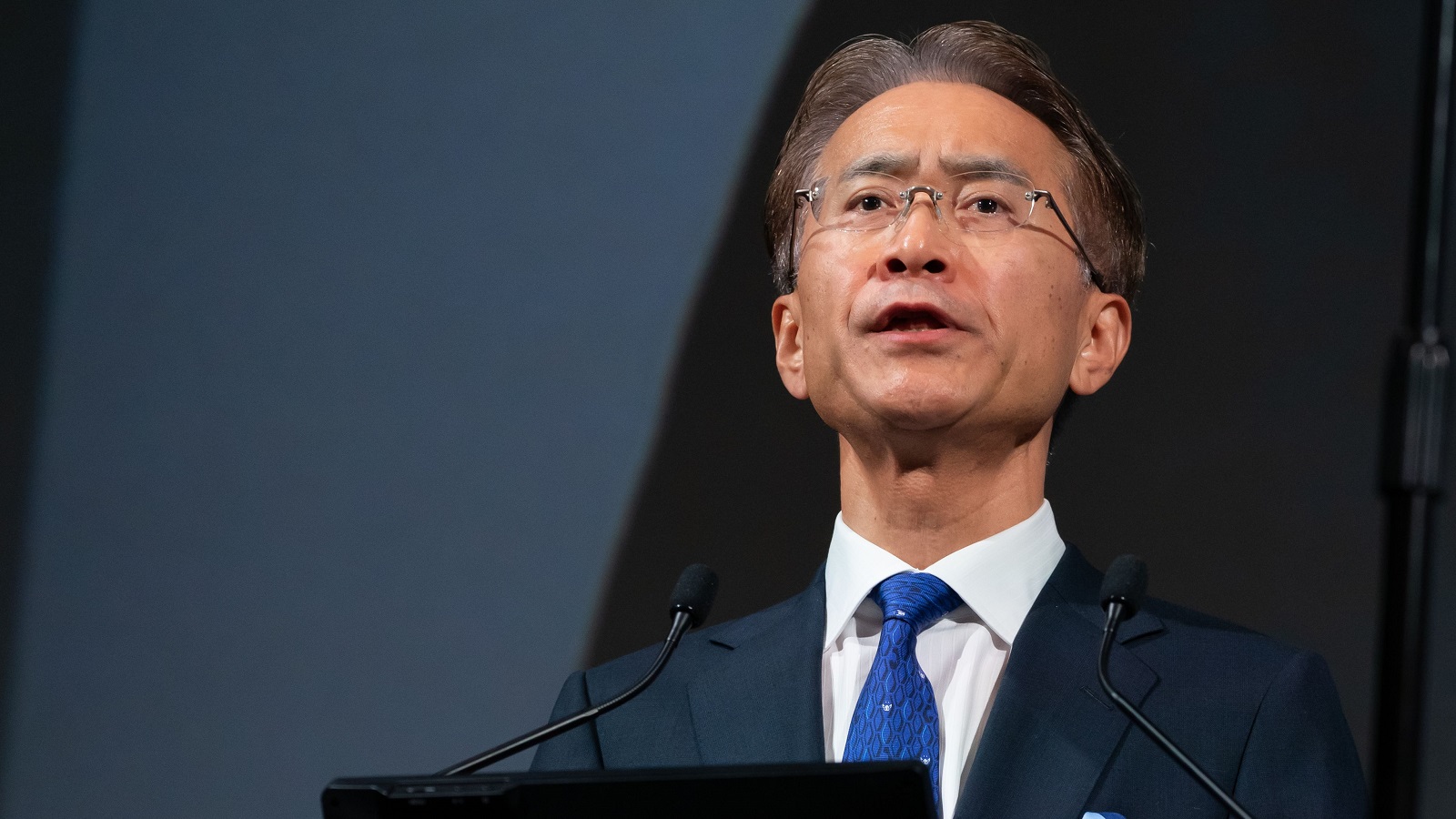Sony To Buy Finance Unit for $3.7 Billion Following Strategic Review
By Patrick Frater
LOS ANGELES (Variety.com) – Japanese electronics to entertainment giant Sony is to offer up to $3.7 billion (JPY400 billion) to take full control of its finance division. The move would shore up its profits.
Sony president and chief executive Kenichiro Yoshida made the announcement as part of an hour-long presentation on group strategy on Tuesday afternoon, Tokyo local time. The Nikkei newspaper carried some details of the take private transaction earlier in the day. Sony shares in Tokyo closed up 3.25% at JPY6,902 ahead of the strategy presentation.
Sony Corp. currently owns 65% of Sony Financial. It will make a tender offer of JPY2,600 per share. The unit controls assets of $13.5 billion (JPY14.5 trillion) and last year made profits of $1.21 billion (JPY130 billion).
Finance industry commentators said that Sony is following in the tracks of other media-tech companies Apple and Alibaba and taking full control of their finance arms at a time of financial uncertainty. It would also allow Sony to compete more strongly in the fast-expanding fintech business.
During an earnings call last week, after presentation of Sony’s annual results, chief financial officer Hiroki Totoki said that Sony is in a strong position to make strategic investments or acquisitions. Totoki said that Sony had prudently managed its financial resources and had close to $9 billion (JPY910 billion) of cash on its balance sheet at the March year end. A further $14.7 billion of credit and commercial paper programs were also unused and available.
Sony has come under repeated pressure from activist investor Daniel Loed and his Third Point Capital company. A few years back Loeb pressured the company to sell off its filmed entertainment businesses, but was resisted. In 2019, Loeb called for disposal of the semiconductor business. That suggestion was rebuffed at the time, but Loeb renewed the call in March this year and pointed to Sony’s depressed share price.
During the strategy presentation Yoshida said that Sony will “continue to review its portfolio of businesses.”
Yoshida reiterated the group’s plans to unveil the next generation PlayStation 5 (PS5) console by the holiday season at the end of the year. He said that the new console will have improved screen resolution and vastly enhanced speed. That will allow greater accessories to be used in games and for the introduction of haptics as additional in game sensations. New games are being developed both by in-house and third-party developers.
Yoshida said that the pictures division, had felt an “extremely large impact” from the ongoing coronavirus outbreak. Despite that, new movies are being developed from Sony’s stable of Marvel characters, and others from PS games. He said that Japanese animation is enjoying global success, and that Sony will seek expansion in the sector.
That was one of the reasons for the recent decision to invest $400 million buying a stake in Chinese streaming platform Bilibili.
“Seeing opportunities in digital entertainment in China, Sony will strengthen a wide range of business relations in games, anime and music (in China),” Yoshida said.
Despite pressure from investors, and the current global slowdown in smartphone sales, Yoshida offered no prospect of selling the semi-conductor operations. “We still aim to be the world number one in imaging chips, and to become the number one in sensing,” Yoshida said. The company ducked direct comment on Sino-U.S. trade tension which could affect Sony’s chips business. Rather Yoshida said that while smartphone sales may have plateaued, Sony expects to see growth as the next generation of phones use more cameras and lenses.
Japanese music and artist management is another area targeted for growth.
For the year that ran from April 2019 to March 2020, Sony reported group profits down by 36% to $5.34 billion (JPY582 billion). Group revenues were down 5% at $75.7 billion (JPY8.26 trillion). Revenue and net profits at the film, TV and channels division were up from $489 million in the previous financial year to $628 million.

